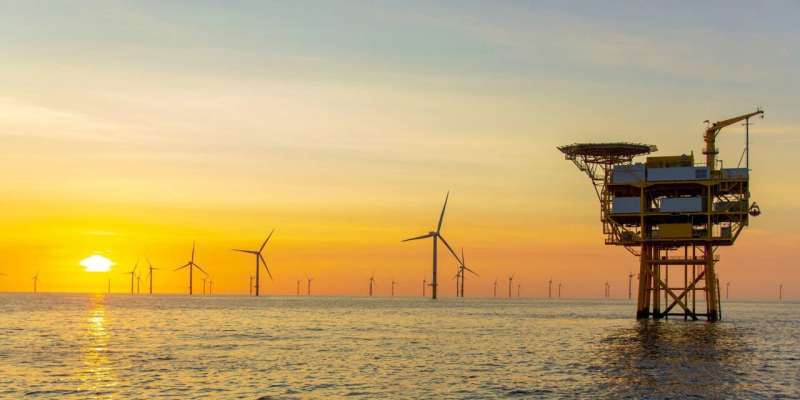As the world grapples with the energy transition, a promising solution emerges from an unexpected source: repurposing existing oil and gas infrastructure for geothermal energy. This article explores how Scotland’s Heriot-Watt University is leading the charge in unlocking the North Sea’s untapped geothermal potential, offering a path to a more sustainable future. Key insights include the advantages of utilizing existing wells, innovative geothermal extraction methods, and the human element of workforce transition. Geothermal energy and energy transition are the focus of this thought-provoking piece.

Unleashing the geothermal potential of the North Sea
The North Sea, famous for its stores of oil and gas, is also a giant cauldron of heat. Geothermal energy is virtually infinite and renewable, but it has been used for generating electricity in the world since the early 20th century. So with the world increasingly looking to move away from fossil fuels, there’s potential that we might be able to convert some existing oil and gas infrastructure into geothermal energy extraction devices.
The Global Research Institute for “net zero and beyond,” iNetz+, at Heriot-Watt University leads this innovative step. By accessing the familiar North Sea oil and gas fields, they want to open up the geothermal power lurking beneath the surface of the region – cheaply and cleanly. It is a strategy that not only eliminates the environmental footprint and cost of drilling new wells, but also extends the life of existing assets and presents fresh opportunities to workers in the energy sector.
New Extraction Processes in Geothermal Energy
These are all clever strategies but very few examples of repurposing the massive and extensive oil and gas infrastructure for geothermal energy production. Such kind of systems are called as open loop systems and they have been already tested in several parts of the world, including the U.S., China and Colombia, generating hot formation water directly for geothermal energy. This geothermal power production can be done in late-stage oil and gas production as the water content of produced fluids increases, leading to high-energy brines.
Another potential approach is closed loop systems, where fluid flows through conduits in the rock and returns to the same well (e. g. for heating). The authors have also identified heating with limited heat dissipation, but applying the global ideas of long horizontal wells in unconventional gas production can greatly increase the contact surface area between the well and working fluid. Enhanced geothermal systems (EGS) use hydrofracturing to open deeper rock and create pathways where there is no naturally occurring or reservoir geothermal fluid flow, blasting water back out the bottom of a borehole into a produced field, potentially reaching higher temperatures.
Roger Miller — Speaking on Overcoming Adversity and Fostering Collaboration
And retooling fossil fuel infrastructure for geothermal power is no walk in the park. Regulations often require a very short interval between the time that hydrocarbon production stops and well abandonment starts, underscoring the importance of engaging with policy makers to frame regulation that will enable this transition. Further, the field of geothermal production is fundamentally different from the ways in which oil and gas are extracted, thus warranting an entirely new world of experience (fewer than 10 expert hydrothermal production engineers exist worldwide) and a revised mindset for how we must mind these resources belowground.
Transition to geothermal energy can be made only if it is economically viable. That said, with advances in technology and power systems becoming more favourable for renewable supply and curtailment, the business case for geothermal energy is steadily gaining strength. Workforce transition ensures that complexity in this area creates a major opportunity for any organisations seeking to lead on decarbonisation, especially if they are founded upon industry expertise, as Heriot-Watt University is — in both traditional energy systems and renewable technologies.
For the exploitation of the great potential linked to reusing oil and gas infrastructure for geothermal energy, collaborative actions are needed. iNetz+ in collaboration with Heriot-Watt University is keen to engage with the energy industry (including policymakers and other researchers) to take further steps in realising this game-changing solution for the North Sea and beyond.
